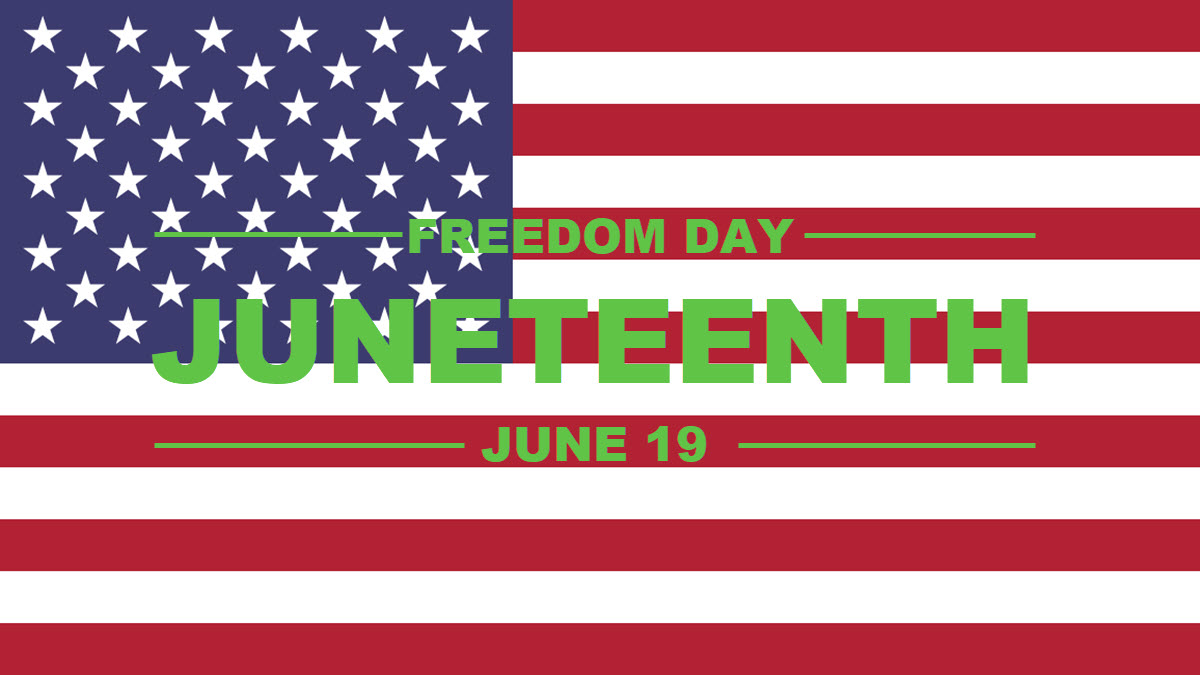
- This event has passed.
Juneteenth

Juneteenth, celebrated on June 19th, holds a particularly significant place in United States history and African American culture. This date marks the anniversary of June 19, 1865, when Major General Gordon Granger arrived in Galveston, Texas, and announced the end of the Civil War and the emancipation of enslaved African Americans in the state, more than two years after the Emancipation Proclamation was issued by President Abraham Lincoln on January 1, 1863.
Table of Contents
- When is Juneteenth?
- The History of Juneteenth?
- What Do People Do on This Day?
- Who was General Gordon Granger?
When is Juneteenth?
Juneteenth is a federal public holiday in the United States and it is celebrated on June 19th each year. The following is the list of Juneteenth in the United States.
The History of Juneteenth?
On January 1, 1863, during the American Civil War, President Abraham Lincoln issued the Emancipation Proclamation, declaring all enslaved people in Confederate-held territory free. However, this did not immediately free all slaves, especially in remote areas like Texas.
Union Major General Gordon Granger arrived in Galveston, Texas, on June 19, 1865. Texas was one of the last Confederate states where slavery was still practiced, as the minimal presence of Union troops in the region had delayed the enforcement of the Emancipation Proclamation. Granger read aloud "General Order No. 3" in Galveston, proclaiming the freedom of enslaved people in Texas.
The first Juneteenth celebrations began in 1866. These were initially local Texas gatherings and involved prayer services and celebrations of African American culture. As African Americans migrated from Texas to other parts of the United States, they carried the Juneteenth celebrations with them.
Texas made Juneteenth a state holiday in 1980. Other states gradually followed, recognizing it in various forms.
On June 17, 2021, President Joe Biden signed the Juneteenth National Independence Day Act, which made Juneteenth an official federal holiday.
What Do People Do on This Day?
On Juneteenth, a variety of activities and events are organized to celebrate African American freedom, culture, and achievements. These celebrations are both joyful and reflective, providing opportunities for community gathering, education, and reflection on the historical significance. Here are five common ways to celebrate:
Many cities host festivals and parades featuring music, dance, and other performances that celebrate African American culture and history.
Churches and religious organizations often hold special services or prayer meetings to honor the day and reflect on the journey of African Americans.
Families often come together for cookouts, picnics, or barbecues. These gatherings are a way to reconnect with family members and pass down the historical significance of Juneteenth to younger generations.
Art exhibitions, film screenings, and theater performances focusing on African American history and culture are often organized. These events highlight the contributions and resilience of the African American community.
Workshops, seminars, and lectures may be held to discuss the history of slavery, the Civil War, emancipation, and current issues of racial justice and equity.
Who was General Gordon Granger?
Gordon Granger was a Union general during the American Civil War, best known for his role in the enforcement of the Emancipation Proclamation in Texas, which led to the celebration of Juneteenth. His military career spanned decades, and his actions during the Civil War and Reconstruction left a lasting impact.
He was born on November 6, 1821, in Joy, New York, and graduated from the United States Military Academy at West Point in 1845. He served in the Mexican-American War (1846–1848), gaining valuable combat experience, and then participated in campaigns against Native American tribes and in various garrison duties across the United States.
Granger quickly rose through the ranks during the Civil War, earning recognition for his leadership and strategic mind and played key roles in several major battles such as the Battle of Chickamauga (1863) and the Battle of Mobile Bay (1864).
After the Confederacy's surrender in April 1865, Granger was assigned to command the District of Texas to restore federal authority and enforce emancipation. On June 19, 1865, Granger arrived in Galveston, Texas, with 2,000 Union troops, and issued "General Order No. 3", which effectively ended slavery in Texas, freeing approximately 250,000 enslaved people.
Granger continued to serve in the U.S. Army during the Reconstruction period, focusing on rebuilding Southern states and enforcing civil rights. Gordon Granger died on January 10, 1876, in Santa Fe, New Mexico, at the age of 54.